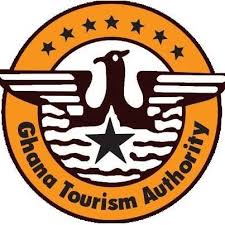Ghana Cultural Tours
The distinctiveness of Ghana’s culture emanates from the history of its people. Located in the heart of the world with rich traditions, the country has been a crossroad of global cultures and influences with vibrant identity, this cultural diversity is evident with over 75 African dialects spoken in current day Ghana.
This binds the people of Ghana together with their uniqueness. Grassroot tours takes you into the central bashion, habitation and explore the cultural landscape of Ghana. Come and have an encounter with the past, the present and the amazing enlightenment of the world’s friendliest people: the pomp and pageantry of royalty, music, dance,tradition, textile and culinary experiences would bring the understanding of the world’s culture.
Traditional Blessings Tours
Traditional blessings are given by the gods and communicated by spiritual leaders to those wishing guidance, protection or prosperity. Gifts to the gods are given in exchange for the care that they provide to you.
Grassroot Tours can host traditional blessings for individuals or small groups. These are performed by a spiritual leader in our area and involve prayers and offerings to traditional gods at a traditional sacred altar.
Ghana Festivals
Ghana is a land of festivals which are a colorful and vibrant part of our culture. Festivals and durbars are held in various parts of the country to celebrate the history of the people, offer thanks and mark important rites. The celebration of these festivals in Ghana is an essential part of Ghanaian culture. Some of these Festivals include;
- Akwasiade: Celebrated in January by the people and chiefs of Ashantis with a beautiful and colorful durbar of chiefs. The festival is celebrated on a Sunday, once every six weeks.
- Bugum (Fire Festival): This festival is held by many ethnic groups in Northern Ghana. Most Muslims and Non-Muslims take part in the celebration. The fire (Bugum) festival is observed by the Muslims to mark the landing of Prophet Noah’s (Nuhu) Ark after the flood. It is celebrated in the night with bundles of grass used as torches. This is the period during which some non-Muslims make offerings to their ancestors and God, since the festival marks the beginning of a new year.
- Ghana Paragliding Festival: In just a few short years, the Ghana Paragliding Festival has become an integral part of the annual Easter celebrations in Ghana. Easter is one of the most popular holidays in many regions throughout the country. The festival attracts both Ghanaians and foreigners alike for more than 3 days of spectacular aerial fun, ceremony and music.
- Aboakyir Festival: The Aboakyer festival is a bushbuck hunting festival celebrated by the people of Winneba in the Central Region of Ghana.
- The name ‘’Aboakyer’’ translates as ‘hunting for game or animal’ in Fante dialect as spoken by the people of the Central region.
Funerals
A funeral in Ghana is something to behold, and you are welcome to attend any funeral that you may see. Funerals are generally held on weekends and are easy to see because of the distinctive red and black dress that all attendees are wearing.
While of course there is mourning, the emphasis at a funeral is in the celebration of the life of the deceased and ensuring that the spirit of the deceased has a good send-off. Objects that will please the spirit of the deceased are in full display and families will spend undesirable amounts of money for an extravagant funeral. Funerals often come complete with drinks, DJs, dance and revelry.
Ancestral Alters and Shrines
Throughout Ghana many people recognize the spirit of their ancestors. Prayers will be made and offerings given to important family members that have passed into the spirit world. These ancestors are always with you and offer guidance and protection. It is for this assistance that elaborate funerals are so important to give to the spirit of the deceased.
Important anniversaries of the passing of ancestors will also be remembered, with especially large celebrations being held on the 1 year, 5 year, 10 year anniversaries of death, and beyond.
Churches and Mosques
About 60% of Ghanaian population are Christian, mostly in the south. So of course there are numerous churches, cathedrals and other places of Christian worship throughout Ghana. You can explore lovely churches in Accra, Kumasi, Ho and other large cities, as well as surprisingly in Navrongo in the far north. Catholic and Methodist churches are particularly elaborate in some places.
Islam is the 2nd largest religion in Ghana. Muslims are about 21% of the Ghanaian population and are the majority in the north of Ghana. Mosques can be found in every town or city in Ghana. In a number of places in the north, there are ancient mosques that are quite amazing. You are always welcome for prayers if a practicing Muslim. Otherwise, the Imam or a caretaker will be able to give you a tour around the Mosque with your Grassroot Tour Guide.
Ghana hosts numerous festivals, each rich in cultural significance. Some of the most notable include:
Akwasidae: Celebrated every six weeks by the Ashanti people.
Homowo: A harvest festival by the Ga people of Accra.
Bugum (Fire Festival): Celebrated by various ethnic groups in Northern Ghana.
Ghana Paragliding Festival: Part of the Easter celebrations.
Aboakyir Festival: A bushbuck hunting festival in Winneba.
Traditional blessings in Ghana are given by spiritual leaders and involve offerings to the gods for guidance, protection, and prosperity. These ceremonies can be hosted for individuals or small groups, often performed at traditional sacred altars.
Ghanaian funerals are elaborate and focus on celebrating the deceased’s life. They often include music, dance, and revelry, with attendees dressed in distinctive red and black attire. Funerals are major social events, and families spend considerable amounts to ensure a grand send-off for the deceased.
Ghana is culturally diverse, with over 75 African dialects spoken. This linguistic diversity reflects the country’s rich heritage and history.
Yes, tourists are welcome to participate in Ghanaian festivals. Festivals like the Chale Wote Street Art Festival in Accra attract both locals and international visitors, offering a chance to experience Ghana’s vibrant cultural life.
Ancestral altars and shrines in Ghana are used to honor deceased family members. Offerings and prayers are made to ancestors, who are believed to offer guidance and protection. Elaborate funerals and anniversary celebrations are also part of this tradition.
Ghana has a significant Christian population, with numerous churches and cathedrals, particularly in the south. Catholic and Methodist churches are especially prominent. There are also elaborate churches in cities like Accra and Kumasi.
Ghana’s northern region has a majority Muslim population, and there are many ancient and modern mosques throughout the country. These mosques are significant cultural and religious sites, and visitors are often welcome to tour them.
When attending a Ghanaian festival, it’s important to respect local customs, dress modestly, and be aware of safety and etiquette. Each festival has unique traditions, and engaging a local guide can enhance the experience.
Ghanaian festivals are colorful celebrations that include music, dance, traditional clothing, and food. They often commemorate historical events, celebrate harvests, and honor ancestors. These festivals play a crucial role in preserving and promoting Ghana’s cultural heritage.




